Today, the U.S. Supreme Court issued disheartening decisions on twin partisan gerrymandering cases, claiming that “partisan gerrymandering claims present political questions beyond the reach of the federal courts.” The ruling closes the door on future cases, but underscores the need for every Illinoisan to join our fight to demand our politicians quit suppressing our votes and our voices by rigging our districts.
“The Supreme Court’s refusal to rein in and end partisan gerrymandering is extremely short-sighted and irresponsibly dangerous,” said Madeleine Doubek, Executive Director of CHANGE Illinois. “If the court refuses to end the rigging of districts that destroy democracy and suppress votes, then it is more critical than ever that each of us rise up and fight for an end to this corrupt practice that suppresses our voices, our choices and our right to votes that count for all. We deserve competitive elections and an equitable democracy in Illinois.”
The Supreme Court’s decision means more of us in Illinois must ask our elected leaders to banish gerrymandering. In Illinois, we now have both a governor and mayor in J.B. Pritzker and Lori Lightfoot who have committed publicly and repeatedly to their support for an independent process to draw our lines. We call on them to live up to their pledges to fight for fair representation for all.
Governor Pritzker repeatedly has stated — both on the campaign trail and in office — that he supports independent mapping and has pledged to veto a gerrymandered map. If this legislative session was any indication of how powerful a force the governor can be to achieve his agenda, then we are confident he will do right by Illinoisans by working with Illinois lawmakers to win the redistricting reform the people clearly want and deserve.
In a recent interview with Chicago Tonight, Mayor Lightfoot lamented the city council’s redistricting process that results in the “carving up [Chicago’s] communities in a way that isn’t fair to them and doesn’t give them fair representation.”
Despite these disappointing decisions, momentum is growing from people in Illinois and across the country who are challenging states’ discriminatory gerrymandered maps. Last year, six politically-diverse states successfully worked to end gerrymandering. Pennsylvania’s state supreme court struck down the keystone state’s congressional maps, forcing new ones ahead of last year’s elections. The final five states that passed anti-gerrymandering initiatives at the ballot box are: Colorado, Michigan, Missouri, Ohio, and Utah.
CHANGE Illinois and more than twenty partner organizations already have begun planning our work for 2020 and beyond to determine the best, most effective way we can positively change the state map-making process to ensure everyone’s voice is heard at the ballot box.
In better news for democracy, the U.S. Supreme Court today, in another 5-4 vote, also blocked the untested citizenship question from going on the 2020 Census.
The addition of a citizenship question would have disproportionately discouraged census participation from Illinois’ immigrants and communities of color due to fear the data collected could be used to target people for harassment and deportation. Lower response rates in these communities would have almost certainly caused an undercount in Illinois and the loss of billions in federal aid a congressional seat and Electoral College representation.
Even without the citizenship question, recent threats of immigration raids have made the count tougher. Illinois faces other challenges to get everyone counted next year. The 2020 Census will be the first time the U.S. Census Bureau will use the internet as the primary method for people to submit census forms. There remains a significant risk that people who live In Illinois’ rural communities or who are poor with limited broadband access, will not respond to the census. Studies show Illinois could lose over $1.2B over the next decade with even a 1% undercount (about 120,000 residents).
Without a full and accurate Census count, hundreds of millions of dollars in federal funding is in jeopardy – funding that supports critical programs like Medicaid, Head Start, and infrastructure funds to fix Illinois’ highways and bridges.
To stay up to date with our work on fair maps, a full census count and the rest of our agenda for ethical and efficient government, sign up here: http://changeil.org/get-involved/.
